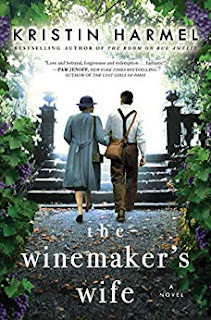German-owned publisher Macmillan’s war on libraries and library patrons accelerated last week when the publisher went through with its plan to limit e-book sales to only one copy per library for the first eight weeks after publication. It matters not whether the library is serving a community of 5,000 patrons are one of hundreds of thousands – it’s one copy per library. So don’t bother getting in line to stream a new e-book anytime soon for anything published by Macmillan or any of its divisions, including Henry Holt & Company; Bloomsbury; Faarrar, Straus and Giroux; North Point Press; Picador; Metropolitan Books; Graywolf Press; St. Martins; Tor; and Forge, among others.
Macmillan is apparently under the absurd impression that if library patrons are unable to get a free copy of an e-book from their local library they will run right out and purchase a copy of their own – at what many consumers consider to be the inflated price that publishers charge for e-books today. We all know that’s not going to happen. Personally, I read about 125 books a year on average, with approximately half of those 125 being books published in the year that I read them. Of those 60 or so books, maybe half of them are e-books that I get either from my county library system, directly from publishers as ARCs, from the Amazon First Reads program, or via Amazon purchases. Simply put, I read way more books than I can afford to read, and if I have to buy them they are not as likely ever to be read and reviewed or otherwise featured on Book Chase at all. I don’t kid myself into believing that what I do is all that important to the bottom line of a giant publisher like Macmillan. But I do know that there are hundreds of book bloggers out there and that, taken as a group, we are important contributors to the publicity that authors and publishers so desperately need if they are going to sell books in today’s market.
I am just old school enough that I still much prefer a hard copy or quality paperback version of a book to its frailer e-book cousin. I often read an e-book that I end up loving so much that I add a hard back copy of the book to the permanent collection on my personal library shelves. E-books just don’t give me a sense of permanency, and I doubt that they ever will. I never know if I own them or if I’m just renting them long enough for a new format to come along, replace them, and make all my e-books obsolete. After all, music publishers have gotten away with that little trick for years, so can book publishers be far behind with some kind of “planned obsolescence” scheme of their own?
Libraries, too, are a source of free publicity for publishers and their new books. It’s already bad enough that libraries are charged three to four times the price that consumers pay for e-books, even though that makes a little sense considering how many times the e-books are being read and that they never wear out. Many, if not all, publishers limit the number of times an e-book can be checked out before it has to be repurchased by the lending library; again, that makes some sense to me. But this new scheme of Macmillan’s is (I sincerely hope) going to backfire on the publisher and its authors. I doubt that the increase in sales is going to make up for the reduced number e-book copies that libraries are going to purchase for “older” books when they are finally allowed that privilege – books whose marketing buzz is already over. Libraries have limited budgets and they base their book purchases on expected demand from their patrons. So why would they buy books that no one is asking about anymore?
One final thought: How many bestsellers, do you think, were constructed largely out of sales to libraries? Libraries, taken as a whole, buy lots of copies of books and what they buy can be enough to catapult a book onto the bestsellers lists almost instantly. Perhaps even more important, library sales can mean the difference between an author working years for very little return and making a nice income for their efforts. I can’t imagine that too many Macmillan authors are happy about this misguided approach, so let’s hope someone at the top comes to their senses soon.































